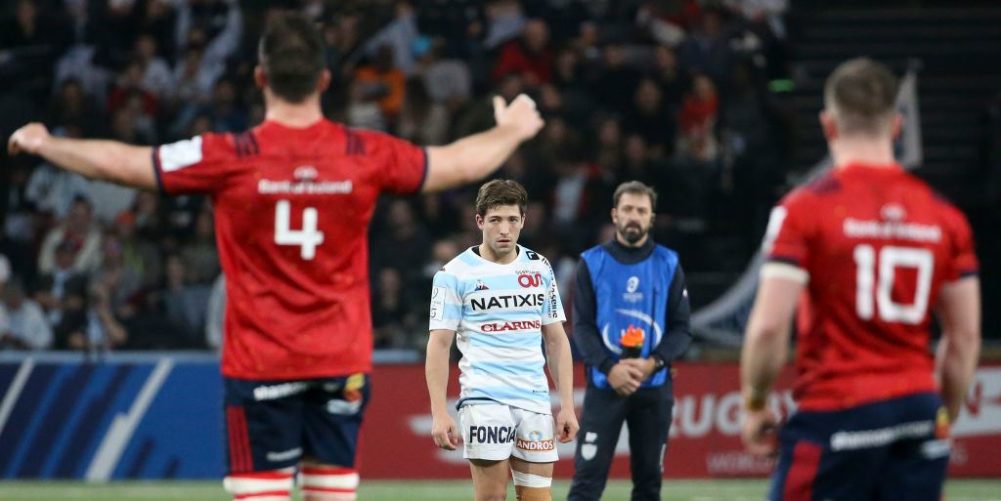The word “aggregate” has secured its own place in the darkest corner of the rugby lexicon, along with “biting”, “gouging”, “match-day shaving” and any combination of “breaking”, “cap” and “salary”. Two-legged knock-out ties are the second best idea in the sport. The best idea? Anything and everything else.
This being established as an incontrovertible fact, it came as no particular surprise when the brogued and Barboured top brass of European Professional Club Rugby announced, from their tax-efficient base in Switzerland, that next season's Heineken Cup quarter-finals will be contested on a home-and-away basis. What could be more natural? It's not as if we live in a golden age of leadership. Or even a tin one.
With the exception of those misguided souls who believe there are 53 weekends in a calendar year and expect rugby to be played on all of them, most followers of the game will see this as a move in precisely the wrong direction. And to make matters worse, it may be more than a one-off solution to problems created by the pandemic.
In an interview with the SportBusiness news outlet, the EPCR chief executive Vincent Gaillard was quoted as saying that the new quarter-final format could be extended as part of the next broadcasting agreement – the current deals with the likes of BT Sport and beIN Sports expire at the end of the 2021-22 campaign – and that it might even stretch to cover the semi-finals as well.
What are we to make of it, at a time when the great and good of the game are meant to be united in their approach to player welfare management – an approach supposedly rooted in the “less is more” theory of fixture planning, rather than the “more is more” version? In a sport crying out for quality over quantity, the number of matches in tier-one European nations is growing faster than Luke Cowan-Dickie's facial foliage or Dave Ewers' biceps.
For the true aficionado, European quarter-final weekend in its raw sudden-death form is the principal glory of the club season. Always has been. Truth be told, it knocks spots off most international rugby into the bargain.
The two changing-of-the-guard Munster victories over Stade Francais in the early Naughties; the breathtaking Leinster triumph in Toulouse in 2006; the “Bloodgate” affair at The Stoop in 2009; the borderline-perfect Clermont Auvergne display at Saracens in 2012; the London club's last-kick victory over Racing 92 in a god-forsakenly tumbledown part of Paris in 2015 – all of these last-eight ties and more were worth any number of England-Scotland processions or Ireland-Italy sleepathons in the Six Nations, sharpened as they were by the win-or-bust atmosphere in which they were played.
Yet European rugby's managerial class, whose grasp of tax matters is generally firmer than their grip on rugby reality, cannot help but diddle around with their own crown jewels, so to speak. When it comes to homespun philosophy, they cling to the line that says: “If it ain't broke, fix it anyway.”
Why were rankings suddenly introduced into the pool draw back in the day, if it wasn't to protect the powerful from the powerful? Why do we need to know who will have home advantage in the last four before we know who the last four might be? Why do Leinster get to play at home, even when they're not meant to be playing at home? Why have four of the five all-French finals been staged somewhere other than France? If the people running European rugby are cleverer than the next men, it is only because the next men are the ones running World Rugby.
Arrangements for next season's revamped tournament, announced this week in a missive so profoundly bamboozling that it would have defeated those responsible for deciphering the Dead Sea Scrolls, may yet work to the tournament's advantage. There is something to be said for a format in which teams from the same domestic league are kept apart in the group stage and there are plenty of reasons to support the beefing up of the second-tier Challenge Cup by incorporating sides who fail to reach the knock-out rounds of the elite competition – a system successfully tried some years ago, then ditched.
But there is something about home-and-away aggregate matches that deadens the spirit. It may be a way of increasing revenue at a time when money is in short supply everywhere except Bristol and Sale, but there has to be more to a match than filthy lucre. Otherwise, you're in England-Barbarians territory. And that's a place you really don't want to visit.
Professional rugby has spent the last quarter of a century fancying itself as the new football and has frequently made a fool of itself as a result. But right now, on this one issue, it can learn a valuable lesson from its infinitely wealthier cousin.
Thanks to Covid-19, the knock-out stages of the UEFA Champions League and Europa League tournaments did away with ties of the two-legged variety and their associated distortions and negativities. The outcome? A roaring success.
Dylan Hartley takes another interview bashing for his past issues while seeking to shine light on the game's present in new autobiography

If, for some peculiar reason, you ever wondered how to sound like an irritable magistrate of the “flogging's too good for ‘em” kind who had just ridden into the court of public opinion astride the highest of high horses, the final sports bulletin of Radio 4's Today programme last Wednesday morning told you all you needed to know.
Rob Bonnet, the broadcaster in question, proved himself an expert in the field.
His brief autobiography-linked discussion with Dylan Hartley was prefaced by a character reference – “One of the most undisciplined Rugby Union players ever to have worn the England jersey” – and a bullet-point précis of the retired hooker's rap sheet. (Anything more than a précis would have stretched into Thursday).
Clearly taken aback by the ferocity of the Bonnet assault, which ranked somewhere between an All Black ruck circa 1976 and a eight-man shove by a pack of vintage Pumas, Hartley struggled for a response. “Whoaaaa, old friend,” was the best he could manage.
But Bonnet was on a roll. “You're not going to justify any of that behaviour, are you?” he snapped. “You're not saying you were more sinned against than sinner, are you?”
All this in the first 65 seconds, on a programme where even the most hapless government ministers expect to make it past a minute and a half before being stripped of their dignity.
It was a clumsy, unnecessarily aggressive interview, yet Hartley, clearly annoyed, managed to make some good points in the face of it.
Rugby's “rogue” element frequently have more interesting things to say than the “goody two shoes” brigade, but all too often, they steer clear of microphones and tape recorders. On this evidence, who can blame them?
CHRIS HEWETT


























